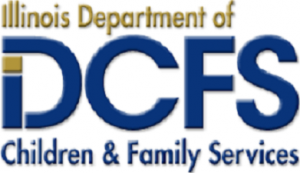SPRINGFIELD – A new report from the U.S. Bureau of Labor Statistics shows the nation hit the largest 12-month inflation increase in more than four decades.
In other news, the Director of the Illinois Department of Children and Family Services (DCFS) was hit yet again with a contempt of court order, the 12th time since January.
Meanwhile, Illinois businesses are set to see a tax increase because the state chose to prioritize other programs instead of paying back its unemployment insurance debt to the federal government.
And individuals of select professions and groups will see the end or easing of COVID-19 vaccination mandates.
Inflation’s increase outpaces experts’ predications

According to a recently released June report by the U.S. Bureau of Labor Statistics, the consumer price index (CPI), which measures prices of everyday goods and services, has increased to 9.1 percent, marking the largest 12-month increase since 1981. The increase outpaced the Dow Jones estimates, which had believed that the annual June inflation total would be at 8.8 percent.
Meanwhile, energy prices have soared 7.5 percent for the month and were up 41.6 percent over a 12-month period. Additionally, the food index was up by 10.4 percent over a 12-month period and has now increased by at least one percent for the sixth straight month.
Overall, the new June 2022 inflation figure is 3.7 percentage points higher than it was in June 2021, and half a percentage point higher than what it was in May of this year.
State Sen. Jil Tracy (R-Quincy) says when lawmakers return to Springfield for special session, the General Assembly needs to work on legislation that provides additional relief for struggling Illinois families, including capping the state’s sales tax on motor fuel at 18 cents per gallon and permanently eliminating the state’s sales tax on groceries and medicine.
Tracy says it is unfortunate the Governor appears to be satisfied publicly touting his temporary elimination of the sales tax on groceries and a six-month delay on the state’s two-cent inflationary motor fuel tax increase.
DCFS Director held in contempt for 12th time this year
 On July 7, DCFS Director Marc Smith was held in contempt of court for the 12th time since January.
On July 7, DCFS Director Marc Smith was held in contempt of court for the 12th time since January.
The latest motion was filed by a Cook County Juvenile Court Judge because DCFS has kept a 15-year-old girl in a psychiatric hospital even though she has been ready for discharge since Jan. 14.
According to the order, Marc Smith in his capacity as director of DCSF is held in contempt of court for ignoring a February court ruling that ordered Smith and DCFS to place the girl by March 5. Instead of complying with that order, DCFS stated that it would place the girl by June 15, which it also failed to do.
The girl has now been in a psychiatric hospital for more than 170 days since she could’ve been discharged, which led the Cook County Judge to place Smith under contempt of court and ordering him to pay $1,000 per day fine beginning July 28 unless the girl is placed.
These hefty fines could potentially cost taxpayers thousands of dollars if Smith fails to comply with the judge’s order. Despite the contempt orders and potential fines, Gov. JB Pritzker has continually backed Director Smith who he appointed to the position in 2019.
Illinois businesses face tax increase due to unemployment insurance debt
 According to a new story from the Wall Street Journal, Illinois is one of four Democratic-controlled states that refused to fully repay the federally borrowed money used to fund unemployment benefits, even though each state had a budget surplus.
According to a new story from the Wall Street Journal, Illinois is one of four Democratic-controlled states that refused to fully repay the federally borrowed money used to fund unemployment benefits, even though each state had a budget surplus.
Illinois, California, Connecticut, and New York are states that chose to use budget surpluses for other priorities instead of paying back their debts to the federal government.
After the spring legislative session ended, Illinois still owed roughly $1.8 billion in its Unemployment Insurance (UI) Trust Fund even though the state increased its permanent operational budget by nearly $3 billion.
If that $1.8 billion debt, which is the second highest negative balance in the nation, isn’t repaid by Nov. 10, the federal government will begin to charge $21 per employee annually on all businesses within the state next year. Additionally, businesses will be forced to pay a still undetermined higher state tax to fund Illinois’ unemployment programs.
Tracy says the Democrats’ decision to shortchange the UI Trust Fund is going to hurt businesses still struggling to recover from the Governor’s imposed shutdowns for a problem they didn’t create. She says state officials should have used this past year’s $16 billion of unexpected revenue, which included $8.1 billion from the federal American Rescue Plan Act, to shore up the UI Trust Fund. Now, Illinois businesses are preparing to face the price for the state’s decision.
Governor eases COVID mandates for select groups
 After months of Executive Orders forcing individuals tied to certain professions to get vaccinated or tested weekly, Gov. JB Pritzker has finally eased up those mandates but only for a select couple of professions and groups.
After months of Executive Orders forcing individuals tied to certain professions to get vaccinated or tested weekly, Gov. JB Pritzker has finally eased up those mandates but only for a select couple of professions and groups.
In a new Executive Order issued July 13 by the Governor, students and employees at higher education facilities are no longer under the vaccine mandate. Additionally, emergency medical service providers, including EMRs and EMTs had their mandate lifted.
Furthermore, unvaccinated health care staff will no longer be required to submit to weekly testing. Instead, long-term care facilities with the most vulnerable residents, including skilled nursing homes, will now test staff who haven’t been fully vaccinated weekly if they are in an area of moderate community level transmission, and twice weekly in areas of substantial or high community level transmission.
Additionally, unvaccinated staff at hospitals and other health care facilities that are certified by the Centers for Medicare and Medicaid Services (CMS) will now be required to test weekly only if located in areas of high community level transmission.
Vaccination mandates are also still in place for state-run 24/7 congregate care facilities and health care facilities not covered under the federal CMS vaccine mandate, which includes independent doctors’ offices, dental offices, urgent-care facilities, and outpatient facilities.
